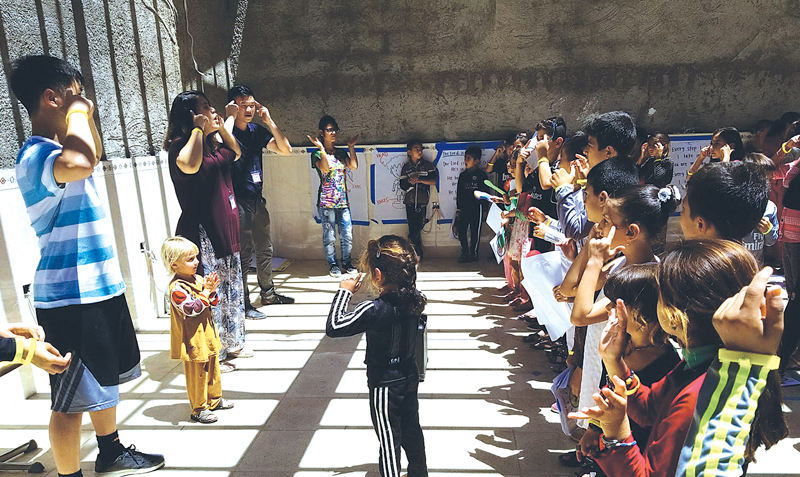
What began with an email requesting medical and dental help has grown into a regular effort by a group of friends from multiple churches to serve the Yazidi refugee population in northern Iraq.
That first email, received by Willy Tan, a lay member of a community church in Fullerton, led to a trip to Southeastern Turkey in 2015, and then a trip to the Kurdistan Region of Iraq in 2016, which consisted of providing medical and dental services to Yazidi refugees.
Those initial trips then led to six more trips to Kurdistan, trips which have been called "Project Nineveh.' The most recent Project Nineveh trip took place in June, during which a team of 15 hosted English camps for a total of some 400 children and youth from three different Yazidi refugee settlements.
Yazidis, a people group identified by their religion (Yazidism), have been severely persecuted by the Islamic State since 2014. Calling the Yazidis "devil worshippers' for their faith, ISIS militants have captured thousands of women and girls as slaves, and forced tens of thousands to flee their homes in Sinjar.
Since 2015, members from multiple churches in Southern California have participated in the trips to Kurdistan, ranging in age from 15 to 65 years old, and coming from diverse occupational backgrounds, including professionals in the medical, dental, finance, IT, business, and educational fields.
Now, Tan and several others who have gone on the Project Nineveh trips plan to make this a regular part of their lives: they are in the process of forming a non-profit organization called "Habibi International.' Habibi is an Arabic term of endearment also used by Yazidi individuals.
"Habibi International seeks to impact the lives of refugees in the Middle East by providing humanitarian relief and development in partnership with local organizations and NGOs," said Daniel Chung, a member of a Los Angeles church who participated in two Project Nineveh trips. "Our primary means of achieving this is through a humanitarian imperative that encompasses healthcare, children's, women's and young adult services throughout the year."
One of the reasons members of Habibi International felt the need to start a completely new organization was to provide more opportunities to serve the Yazidi refugees. Only the United Nations and larger NGOs currently have a presence in Kurdistan, such as World Vision or Samaritan's Purse - agencies which not many in the community are able to gain access to.
But more importantly, Tan hopes Habibi would be able to serve those in the Yazidi population in Kurdistan who may not be reached by aid workers from those larger agencies.
"We want to focus on serving the refugees in the settlements, not the UN-sponsored camps," Tan explained. He estimated that only about 60 percent of the Yazidi refugees in northern Iraq live in the UN-sponsored camps, and the remaining population live in settlements.
Refugees living in the settlements - areas where the Yazidi refugees have congregated on their own, located in places such as abandoned, unfinished apartment buildings - have limited or no access to resources such as water, food, electricity, medical and dental care, and education, Tan said. Living conditions are often bleak.
"Seeing where they live, it made me think, "How can anyone live here?'" Chung recalled during an information session hosted on Friday in Walnut, CA.
The settlements also have large populations of children, particularly because Yazidi families tend to be large - at least 10 children per family, according to Tan. But there aren't enough schools to meet the educational needs of all of the children, and for many families, education is not a priority, he said.
"The English camp was a source of some stability for the children in which they can just learn," said Chung. "And education is a means to be able to change whatever circumstance you're in."
Though in the meantime, Habibi plans to continue hosting more short-term English camps for Yazidi children residing in the settlements, the hope is to provide a longer-term and broader spectrum of education as Habibi becomes an official organization.
And with the establishment of Habibi, Tan and the other members hope that more sustainable and continuous forms of aid - including food, water, and medical and dental care - would be able to reach the Yazidi refugees as well.
Habibi will be taking three trips to northern Iraq in October and November, during which it will be hosting English camps as well as providing more medical and dental care.
For more information, contact Project Nineveh at info@habibi-international.org.

















